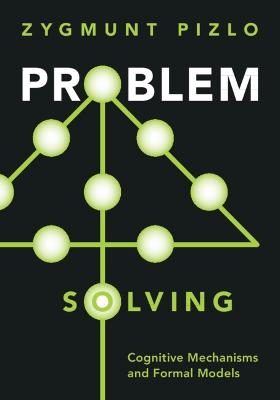
Problem Solving
Cambridge University Press (Verlag)
978-1-009-20559-7 (ISBN)
Intelligent mental representations of physical, cognitive and social environments allow humans to navigate enormous search spaces, whose sizes vastly exceed the number of neurons in the human brain. This allows us to solve a wide range of problems, such as the Traveling Salesperson Problem, insight problems, as well as mathematics and physics problems. As an area of research, problem solving has steadily grown over time. Researchers in Artificial Intelligence have been formulating theories of problem solving for the last 70 years. Psychologists, on the other hand, have focused their efforts on documenting the observed behavior of subjects solving problems. This book represents the first effort to merge the behavioral results of human subjects with formal models of the causative cognitive mechanisms. The first coursebook to deal exclusively with the topic, it provides a main text for elective courses and a supplementary text for courses such as cognitive psychology and neuroscience.
Zygmunt Pizlo is Professor and Falmagne Endowed Chair in Mathematical Psychology in the Department of Cognitive Sciences, University of California at Irvine. He is the author of 3D Shape: Its Unique Place in Visual Perception (2008) and co-author of Making a Machine That Sees Like Us (2014).
Preface; 1. Problem solving – definition of the main concepts; 2. Animal problem solving: innovative use of tools; 3. Modern research on the human's ability to solve problems that have large spaces; 4. The exponential pyramid representation that compensates for the exponentially-large problem spaces; 5. Heuristic function, distance and direction in solving problems; 6. Insight and creative thinking; 7. Inference in perception. Perceptual representation: a rejoinder to insight; 8. Cognitive inference. Mental representations; 9. Theory of Mind (ToM); 10. Solving problems in physics and mathematics; 11. Summary and conclusions.
| Erscheinungsdatum | 10.08.2022 |
|---|---|
| Zusatzinfo | Worked examples or Exercises |
| Verlagsort | Cambridge |
| Sprache | englisch |
| Maße | 178 x 253 mm |
| Gewicht | 393 g |
| Themenwelt | Geisteswissenschaften ► Psychologie ► Allgemeine Psychologie |
| Geisteswissenschaften ► Psychologie ► Verhaltenstherapie | |
| ISBN-10 | 1-009-20559-5 / 1009205595 |
| ISBN-13 | 978-1-009-20559-7 / 9781009205597 |
| Zustand | Neuware |
| Informationen gemäß Produktsicherheitsverordnung (GPSR) | |
| Haben Sie eine Frage zum Produkt? |
aus dem Bereich


